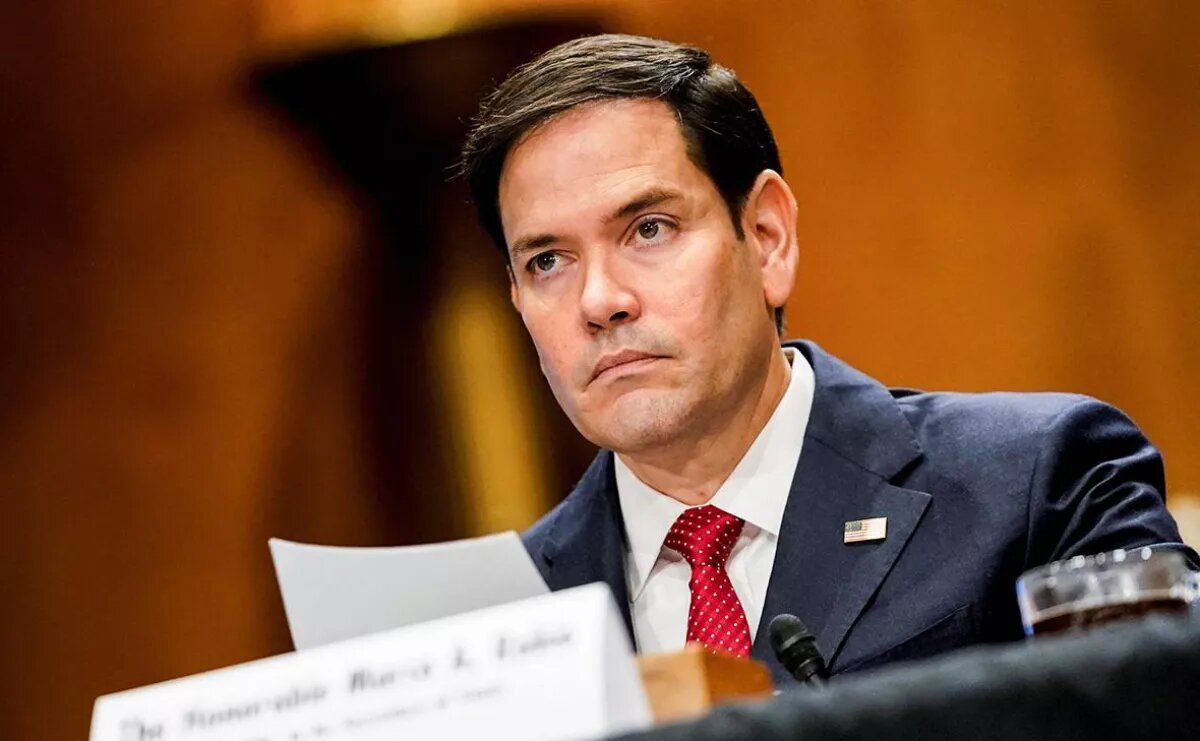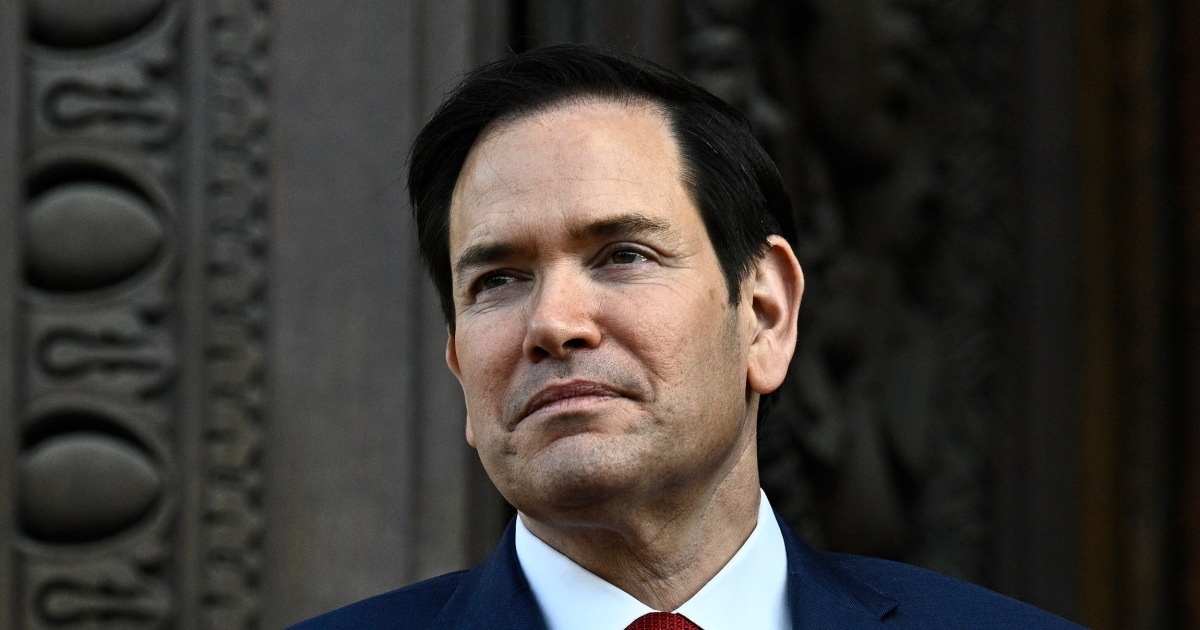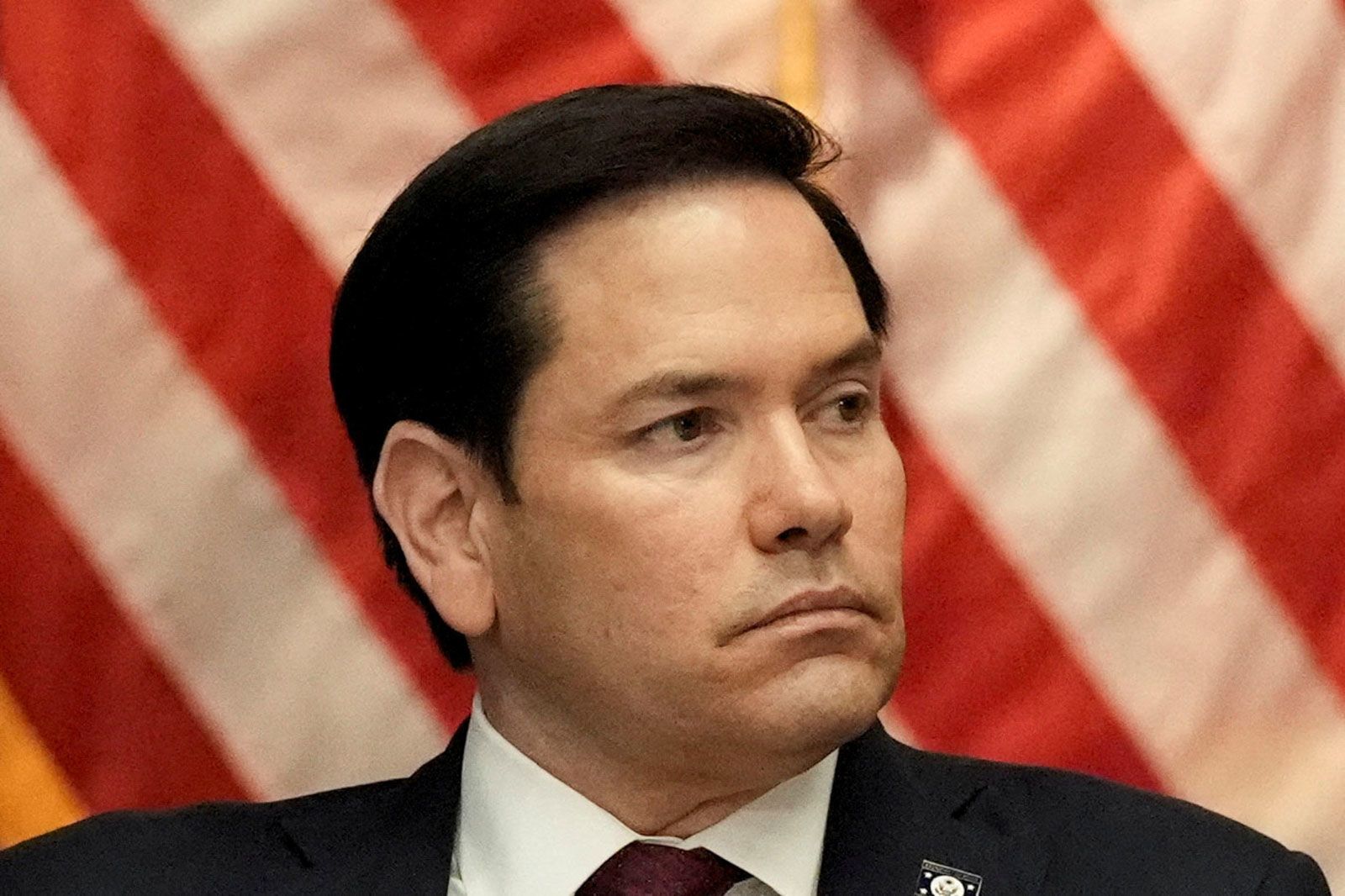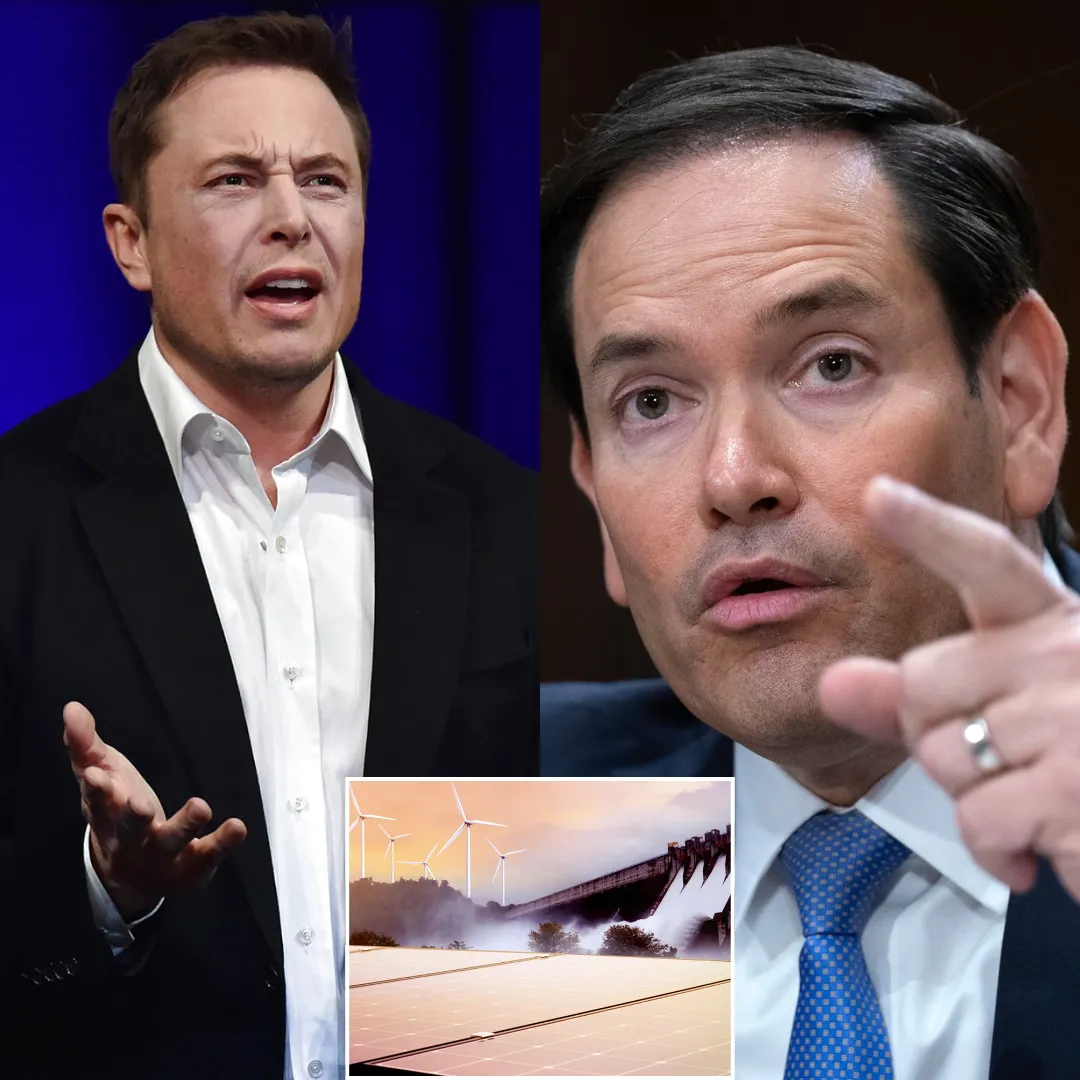
Since taking office as Secretary of State under President Trump’s administration, Marco Rubio has experienced a dramatic increase in political influence, one that is beginning to reshape the dynamics within the White House.
From his high-profile role in foreign policy to his unexpected involvement in various administrative capacities, Rubio’s consolidation of power has raised eyebrows in political circles.
As he holds multiple significant positions—ranging from Secretary of State to acting head of the U.S. Agency for International Development (USAID) and even overseeing the National Archives and Records Administration (NARA) at times—many within the GOP are beginning to wonder if Rubio is positioning himself for a larger role within the administration, or perhaps eyeing a future presidential run.
While Rubio has long been seen as a key figure in the Republican Party, his influence has taken on new dimensions since President Trump took office in 2025.
His rise within the Trump administration signals a shift in the way that power is distributed, not only in the White House but also within the broader Republican establishment.
His growing political presence has ignited speculation that Rubio may not only be shaping U.S. foreign policy but also positioning himself as a potential future leader of the GOP.
Could Marco Rubio be preparing for a presidential run in 2028? The answer to that question is far from clear, but one thing is certain: Rubio’s increasing role in the administration is worth watching closely as it has the potential to influence the trajectory of the Republican Party for years to come.
Marco Rubio’s journey to the position of Secretary of State is a remarkable one, characterized by perseverance, political acumen, and a steady climb through the ranks of the GOP.

Before entering the Trump administration, Rubio had already made a name for himself as a rising star within the Republican Party, having served as a U.S. Senator from Florida.
His early support for free-market economics, strong foreign policy positions, and focus on issues like immigration and education made him a popular figure among conservatives.
Rubio’s background as the son of Cuban immigrants added an important personal dimension to his political career, and his rhetoric on social mobility, the American Dream, and economic opportunity resonated with many voters in both traditional Republican strongholds and the growing Latino community in Florida.
His failed bid for the 2016 Republican presidential nomination did not diminish his influence, and he quickly re-established himself as a major figure in the party.
In 2025, when President Trump appointed him as Secretary of State, many in Washington viewed it as a natural progression in Rubio’s career. His experience in foreign relations, as well as his previous work on international policy issues in the Senate, made him an obvious choice for the job.
However, Rubio’s appointment as Secretary of State has also allowed him to extend his reach into other areas of the Trump administration, raising questions about his ambitions and the consolidation of power within his hands.
Since taking on the role of Secretary of State, Rubio’s influence has expanded well beyond traditional foreign policy concerns. His involvement in multiple areas of governance, including his temporary leadership roles in USAID and NARA, has solidified his position as one of the most powerful figures in the administration.
Rubio’s dual role in overseeing both foreign and domestic policy has provided him with significant leverage, allowing him to influence decisions that impact not only U.S. diplomacy but also the nation’s domestic priorities.
The role of Secretary of State is traditionally focused on managing America’s relationships with other nations, but Rubio has used this platform to exert influence on a wide range of issues.
He has been particularly vocal on issues such as human rights abuses in China, U.S. foreign aid to countries in Africa and Latin America, and the growing geopolitical influence of Russia.
However, it’s his involvement in more domestic matters, such as his tenure as acting head of USAID, that has drawn significant attention.
USAID is a vital agency within the U.S. government that provides foreign assistance to countries in need, often focusing on areas like health, education, and disaster relief. Rubio’s temporary leadership of USAID suggests that he has become a critical player in shaping the U.S.’s approach to global development.
His influence in this area may not be directly tied to traditional foreign policy, but it has far-reaching implications for how the U.S. engages with the rest of the world.
Given the agency’s significant budget and the scope of its initiatives, Rubio’s involvement in USAID could provide him with the political capital necessary to expand his influence even further.
Similarly, Rubio’s brief tenure as acting archivist at NARA has also raised eyebrows. NARA is responsible for the preservation of U.S. historical records, and while this role may not seem as directly tied to foreign policy, it demonstrates Rubio’s growing control over multiple sectors of the government.
His ability to step into this role at a time when there were concerns over the management of presidential records highlights his expanding portfolio and suggests that he is positioning himself as a versatile leader with the capability to handle a wide range of responsibilities.
Rubio’s expanding influence in the Trump administration has prompted speculation about his future political ambitions. Some believe that his increasing control over key areas of governance is part of a calculated effort to prepare himself for a run at the presidency in 2028.
Given his growing role within the administration and his longstanding political career, Rubio is seen by many as a natural successor to President Trump, especially among establishment Republicans who are seeking a candidate who can bridge the divide between the party’s populist base and its more traditional conservative factions.
Rubio’s experience in both domestic and foreign policy makes him an appealing candidate for many in the GOP. His expertise in international relations, particularly his work on foreign policy issues such as the U.S.-Mexico border, relations with China, and the Middle East, positions him as someone who can navigate the complexities of global diplomacy.
At the same time, his commitment to conservative principles on issues like fiscal responsibility, healthcare, and immigration makes him a strong candidate for more traditional Republican voters.
However, Rubio’s growing influence has also led to concerns among some Republicans that he may be consolidating power for personal gain rather than for the good of the party.
His involvement in multiple key government roles has led to speculation that he is laying the groundwork for a presidential bid in 2028. There are rumors that Rubio is quietly building a network of allies within the GOP, including members of the Senate, business leaders, and influential donors, all of whom could play a crucial role in supporting his future campaign.
At the same time, some within the party view Rubio’s growing influence with skepticism. They argue that his establishment ties, his past compromises on issues like immigration reform, and his previous association with more moderate Republican circles could alienate the populist wing of the party that remains loyal to Trump.
Rubio’s more traditional, establishment-driven approach could be seen as a liability in a party that has been reshaped by Trump’s populism, and it remains to be seen whether he can unify the party’s different factions under his leadership.
If Rubio does indeed have presidential ambitions for 2028, he will need to navigate the complex divisions within the Republican Party. The GOP remains deeply divided, with significant tensions between its populist wing, led by figures like Trump and Josh Hawley, and its more traditional conservative wing, which Rubio represents.
These factions have different priorities, especially on issues like immigration, trade, and the role of government, and Rubio’s ability to unite them will be critical to his success in a future presidential bid.
Rubio’s approach to foreign policy, which emphasizes a strong, interventionist stance in global affairs, may play well with the GOP’s establishment wing, which has traditionally supported a more muscular foreign policy.
However, the populist wing of the party, which is increasingly skeptical of U.S. involvement in foreign conflicts, may be less receptive to Rubio’s foreign policy approach. His ability to appeal to both of these factions will be a key challenge as he seeks to position himself as the Republican nominee in 2028.
At the same time, Rubio’s stance on domestic issues, particularly immigration reform and healthcare, will be scrutinized closely. His previous involvement in the Gang of Eight immigration reform bill in 2013, which aimed to provide a pathway to citizenship for undocumented immigrants, remains a controversial aspect of his record.
Many Republicans view this as a betrayal of conservative principles, and it could make it difficult for him to gain the support of the party’s most conservative voters. His ability to reconcile his past positions with the current priorities of the GOP will be a critical test as he seeks to build a broad coalition of support.
One of the most intriguing aspects of Rubio’s increasing influence is his relationship with President Trump. While the two men have had a complicated history, particularly during the 2016 Republican primaries, Rubio’s current role within the administration suggests that he has regained Trump’s favor.
However, this dynamic raises the question of whether Rubio is positioning himself as Trump’s heir or as a rival for the 2028 nomination.
For some, Rubio’s growing power within the administration is seen as a sign that he is preparing to take the mantle from Trump. However, it is unclear whether Trump will ultimately support Rubio as his successor or if he will back a different candidate who aligns more closely with his populist base.
Trump’s endorsement, or lack thereof, could play a decisive role in shaping the GOP’s trajectory heading into 2028.
If Rubio does decide to run for president in 2028, his relationship with Trump will be one of the most closely watched aspects of his campaign. Will he seek to distance himself from Trump’s divisive legacy, or will he embrace the populist agenda that Trump built?
This tension will be a central issue in Rubio’s path to the nomination, as he will need to reconcile his more traditional conservative values with the needs of the GOP’s populist base.
Marco Rubio’s growing influence within the Trump administration has opened up new possibilities for his political future. Whether he is positioning himself for a 2028 presidential run or simply consolidating power within the GOP, his actions in the coming years will have a significant impact on the party’s direction.
Rubio’s ability to navigate the GOP’s internal divisions, appeal to both the establishment and the populist wings of the party, and address the complex challenges facing the U.S. will be key factors in determining his political future.

As the 2028 election cycle draws nearer, Rubio’s role in the Republican Party will continue to evolve. His ability to unite the party’s factions and build a broad coalition of support will be crucial in determining whether he can secure the nomination and ultimately succeed Trump as the leader of the GOP.
Only time will tell whether Rubio’s expanding influence within the administration will propel him to the presidency, or if the party will turn to a different candidate to lead it into the next chapter of American politics.






